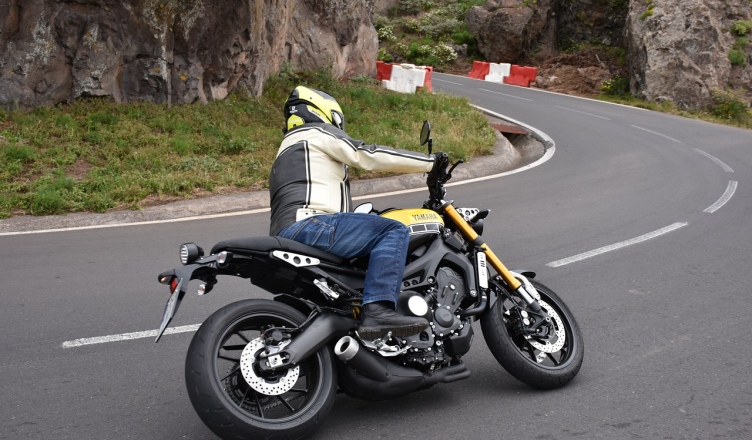Small guide to motorbike trips abroad, with the 5 things to know: necessary documents, mandatory equipment, traffic regulations, useful numbers, and travel policy
From 3 June Italy will reopen the borders with the EU + Switzerland and the United Kingdom countries (waiting to be able to do so with other States) and therefore motorbike trips abroad will also be possible in the complicated summer 2020, unless changes dictated by the evolution of the pandemic which unfortunately we cannot rule out. However many bikers are already planning the itinerary and others will do it in the coming weeks: for their benefit, we publish the 5 most important things to know when traveling abroad by motorbike.
- MOTORCYCLE TRIPS ABROAD: WHICH DOCUMENTS
For motorbike trips abroad in the countries of the European Union and the Schengen area, therefore including Switzerland, all you need is an identity card + driving license, registration document and certificate of insurance, obviously all valid. The Italian driving license is sufficient, in Europe the international driving license is required only in very few States (Russia, Armenia, and Georgia). Instead, the so-called green card, the insurance document that certifies the effectiveness of the RC motorcycle also abroad it is not necessary for EU countries and other states. In Europe, they could still request it in Albania, Belarus, Bosnia, North Macedonia, Moldova, Montenegro, Russia, Turkey, and Ukraine (inquire before leaving). Finally, if you go abroad driving a motorbike that you do not own, it is advisable to have a delegation to lead by the owner: in plain paper for the EU and with a signature authenticated by a notary for non-EU travel.
- MOTORCYCLE TRIPS ABROAD: MANDATORY EQUIPMENT
Oh well, needless to say, that the helmet is mandatory everywhere, then depending on the destination other equipment is needed. For example, limiting ourselves to neighboring or neighboring countries:
Austria: Din 13167 approved first aid kit.
Croatia: Din 13167 approved first aid kit; retro-reflective vest; replacement bulbs.
France: reflective vest, protective gloves approved by EU for driver and passenger; approved breathalyzer kit.
Slovenia: Din 13167 approved first aid kit; reflective vest; replacement bulbs.
Switzerland: reflective jacket.
- MOTORCYCLE TRIPS ABROAD: THE RULES ON CIRCULATION
Also for the rules on the movement of foreign countries, the complete guide of the ACI and the Viaggiare Sicuri website can be consulted, here we report only the countries bordering Italy (+ Croatia), focusing especially on the rules that differ from our country:
Austria: motorway toll via ‘vignette’ ( here the rules on motorway tolls in Europe ); blood alcohol limit 0.049%.
Croatia: forbidden to carry a child under 12 on a motorcycle; dipped headlights mandatory even during the day; blood sugar limit 0.05%.
France: 80 km / h limit on departmental and state two-way and single track roads ( here all the speed limits in Europe when traveling by motorbike ); dipped headlights mandatory also during the day for motorcycles and mopeds registered after 1 July 2004; blood sugar limit 0.05%.
Slovenia: highway toll via ‘sticker’; it is forbidden to carry a child under 12 on a motorcycle; use of mandatory dipped headlights also during the day; blood sugar limit 0.05%.
Switzerland: motorway toll via ‘sticker’; dipped headlights mandatory even during the day; blood sugar limit 0.05%.
- MOTORCYCLE TRIPS ABROAD: USEFUL NUMBERS TO KNOW
Abroad it is always recommended to write down some phone numbers to contact in case of need.
Austria : single European emergency number: 112; roadside assistance: 120; Italian Embassy in Vienna: 0043 (1) 7125121.
Croatia : single European emergency number: 112; roadside assistance: 1987; Italian Embassy in Zagreb: 00385 -1- 48 46 386 – 00385 – 98.417660.
France : single European emergency number: 112; roadside assistance: 0800 089222; Italian Embassy in Paris: 0033 1 49 54 03 00.
Slovenia : single European emergency number: 112; roadside assistance: 1987 or 00386 1 5305353; Italian Embassy in Ljubljana: 00386 1 4262194 0038614262320 – 0038614258659 – 00386 41 736773.
Switzerland: single European emergency number: 112; roadside assistance: 140; Italian Embassy in Bern: 0041 31 350 07 77 – 0041 79 3219202.
- MOTORCYCLE TRIPS ABROAD: TRAVEL INSURANCE
In addition to the compulsory motorcycle insurance, to which any additional guarantees may be added (for example, Accidents to the driver), before leaving, it is necessary to consider whether to take out a travel policy to cover at least the health costs. To tell the truth, until recently, these policies were required above all for travel overseas or in exotic places. But the vicissitudes of recent months, with the pandemic that has shocked the world and from which we will not free ourselves quickly, advise greater caution even when traveling in Europe. On the web, many online companies offer travel insurance rather low prices and they are all quite reliable. Important: those who decide to take out one and wish not to have any surprises make sure that the policy signed also covers the infection by Covid-19.
